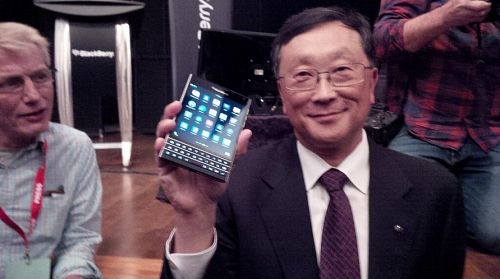This week, CNET is celebrating their 20th anniversary, and for that, they have called on “the visionaries building our new world” to talk about the digital revolution. In this, they have invited BlackBerry CEO, John Chen, to speak about his thoughts on the above topic. Check this out!
What at a difference two decades in Silicon Valley makes. Look at the hardware side: We’ve evolved from gray-box desktop PCs and lightweight laptops to today’s far-more-powerful, sleeker smartphones and tablets. On the software and connectivity side, we’ve transcended yesterday’s restricted client-server networks toward today’s open, agile Internet dominated by public and private cloud software and services.
I’ve seen plenty of change in Silicon Valley over my 35-year career here, the world’s center stage for innovation. I’ve also observed that some things stay the same. For one, the vast majority of startups continue to fail — 92% of startups, according to research. For every Facebook, there are 10 Friendsters. A unicorn today can lose its horn tomorrow — especially ones that repeatedly fall down on user privacy and business security.
Meanwhile, organizations successful in one era can reinvent themselves for the next one. “I’ve seen this movie before” is what I first said when I joined BlackBerry 20 months ago. Look at IBM, HP and Intel. The key to thriving in multiple eras is creating an organizational culture that is always looking to the future and willing to make the hard decisions to adapt to it — and never ignoring fundamentals such as poor security that will make your customers run away.
This is the biggest truth I’ve learned: Open systems always win in the long run. I learned this lesson at my first job as a chip designer, working on the Motorola 88000 processor. With its elegant, 32-bit RISC architecture, the 88000 was faster and technically-superior in every way to Intel’s 8/16-bit 8086 processor. But IBM chose the cheaper 8086 for its PC; that decision spawned the x86 ecosystem that still exists today.
(On a personal level, I used to own a Sony Betamax VCR. My engineer’s mindset at the time led me to choose the “better” product, not understanding that VHS’s open ecosystem would win out.)
No longer. As soon as I joined BlackBerry, I said that vertical and closed was dead and declared that our present and future is bringing our distinctive strengths in security, privacy and productivity to the open, cross-platform world.
In the longer-term, enterprise mobility will be dwarfed by a far bigger industry — the Internet of Things. Smartphones and tablets will be a mere fraction of the smart, connected devices in the IoT universe. Rolling out IoT devices is only one side of the coin — we need software to manage and harvest and analyze data from them.
Does that give a leg up to IoT startups and other speedy, vertically-integrated innovators? No, and here’s why: IoT includes both new sectors as well as established markets. For every connected home thermostat or smart power meter, there are 10 mobile devices, PCs, car-based infotainment devices, etc. IoT is engulfing all of these existing industries. That’s why it’s simultaneously youthful and mature.
Thriving in Silicon Valley may be a hyper-Darwinistic game, but nowhere do the rules dictate that tomorrow’s winners must be highly funded startups. Rather, successful companies had the DNA to be winners once. Who says they cannot rise again? Because reinvention is as quintessentially American of a story as pulling yourself up by your bootstraps (make that Canadian, too — there’s no monopoly on innovation in this global village). That’s a movie I’d pay money to see — and it’s one script I’m currently writing.


